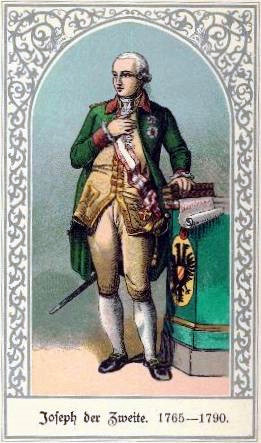 |
| Emperor Joseph II |
In class this week, we talked about the emancipation of the Jews of Europe—the political, legal, and cultural process that brought Jews increasing civil rights and freedom from the legal and other disabilities imposed on them during the medieval period. We looked at Jewish emancipation from the perspective of the civil authorities, how the "improvement of the Jews" and their assimilation into the social and economic life of various countries was seen as an enlightened, humanitarian goal.
Even if well-intentioned, not all of that assimilation was voluntary. In the 18th and 19th centuries, decrees granting Jews political rights also came with restrictions: Jews were forbidden to use Hebrew or Yiddish in legal documents, rabbis were forbidden to perform marriages without a civil license, and Jews were compelled to adopt standardized names.
For most of Jewish history, Jews didn't have "last names." I was just Noah "son of Neil" or Noah "from New Jersey." But in 1787, Hapsburg Emperor Joseph II decreed that Jews must adopt regular family names, to be passed down from generation to generation. Other rulers followed his example. In some countries, the names Jews chose had to be approved by the government; in others, there was a predetermined list of acceptable Jewish names.
After class someone asked if I could find one of these lists—full of "Rosenbaums," "Goldsteins," and other Germanic variations. I'm still looking, but a partial list and an excellent account of the whole story of Jewish names can be found HERE.
No comments:
Post a Comment